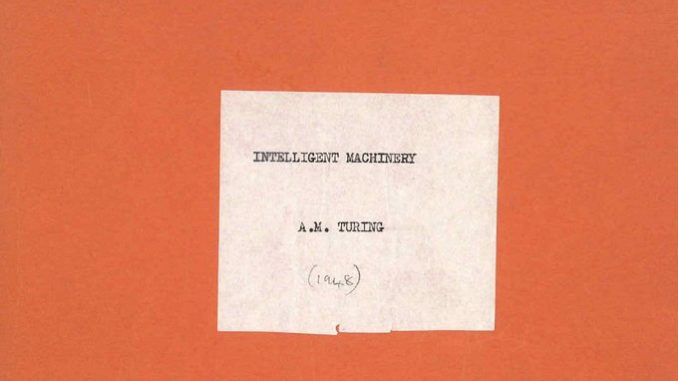
Alan Turing was a pioneer of machine learning, whose work continues to shape the crucial question: can machines think?
When Alan Turing turned his attention to artificial intelligence, there was probably no one in the world better equipped for the task. His paper ‘Computing Machinery and Intelligence’ (1950) is still one of the most frequently cited in the field. Turing died young, however, and for a long time most of his work remained either classified or otherwise inaccessible. So it is perhaps not surprising that there are important lessons left to learn from him, including about the philosophical foundations of AI.
Turing’s thinking on this topic was far ahead of everyone else’s, partly because he had discovered the fundamental principle of modern computing machinery – the stored-program design – as early as 1936 (a full 12 years before the first modern computer was actually engineered). Turing had only just (in 1934) completed a first degree in mathematics at King’s College, Cambridge, when his article ‘On Computable Numbers’ (1936) was published – one of the most important mathematical papers in history – in which he described an abstract digital computing machine, known today as a universal Turing machine.
